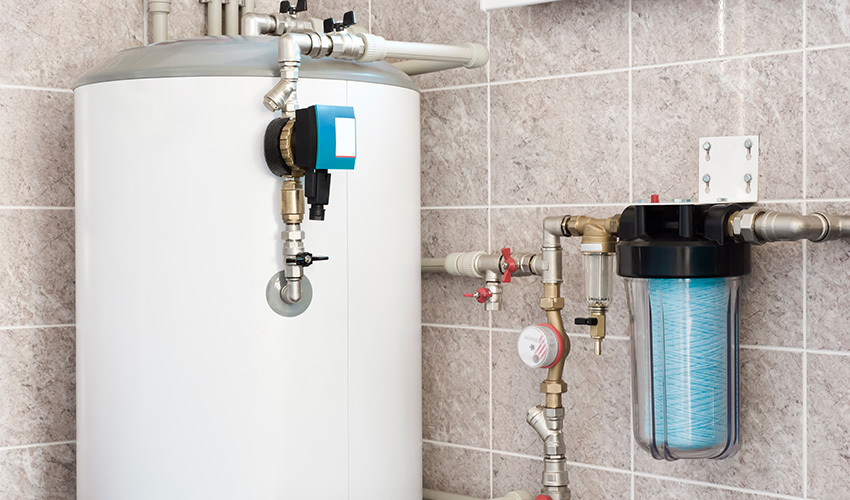How Hard is it to Expand My Half Bath to a Full?
Read More...
It’s time to settle the debate: not all water tastes the same. In fact, not all water looks or feels the same either and this is because water is rarely just water. For instance, hard water has a high composition of minerals such as calcium and magnesium. As a result, this water can leave chalky residue on glassware, silverware, and appliances. It can also make your hands feel slimy even after washing with soap. There is good news, however. A water softener can “normalize” that hard water. Your friends here at Mr. Rooter Plumbing have put together this article to help you select the best water softener for your household.
What Is Hard Water?
Water that has an overabundance of minerals such as calcium and magnesium is called “hard water.” The hardness of this water is measured by the amount of such minerals in the water. You might be confused because most people consider calcium and magnesium to be valuable for our health. Why not have extra minerals? Well, hard water is not necessarily harmful to drink, but it can have consequences for your plumbing system, fixtures, and appliances.
The Risks of Hard Water
If you have ever washed your hands or even showered and felt slimy even though you used soap and shampoo, then you likely experienced hard water. This happens because the minerals in hard water do not allow cleaning products to completely dissolve. Ironically, in this situation, you feel dirty BECAUSE you used soap and shampoo. Jokes aside, the problem is the hard water.
Another consequence of hard water is that chalky residue you find on your faucets, sinks, shower glass, silverware, and so forth. That residue is the mineral deposits and buildup. Though these stains are an eyesore, it could get worse – and it usually does. If this chalky buildup happens in your pipes or appliances, then you can expect costly blockages and low water pressure.
What to Do?
Ok, so you know what hard water is and what it can do to your body, kitchenware, and plumbing system, but what can you do? Chances are you can’t go out and change your water source, but you can alter the quality of your water source with an aptly named “water softener.”
A water softener eliminates the excess minerals in your water supply. When hard water enters the system, it flows through sections of resin beads in the softener tank. There, the positively charged minerals such as calcium, magnesium, iron, and sodium attach to the negatively charged tank. The softened water then continues through the plumbing system and is distributed throughout your building. These systems usually use salt, but there are salt-free alternatives for those who are sensitive to sodium.
Choosing Your Water Softener
Choosing the size of your water softener depends on two primary factors: the size of your household and the grains of hardness in your water. Usually, a 32,000-grain water softener can take care of a family of four, but call Mr. Rooter Plumbing to get in touch with a live representative and arrange an appointment to have your water hardness tested with our dedicated plumbers.